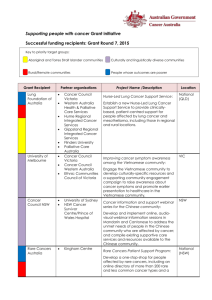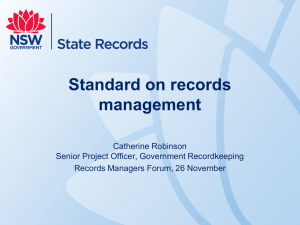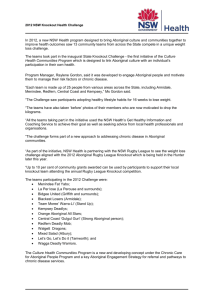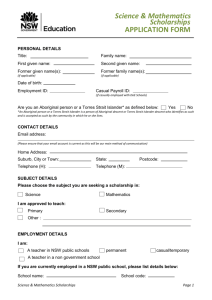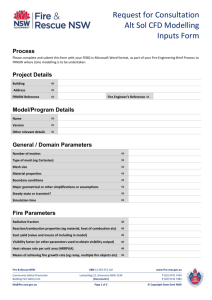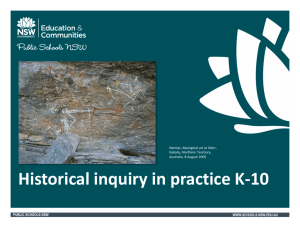Application of population health theory into practice
advertisement
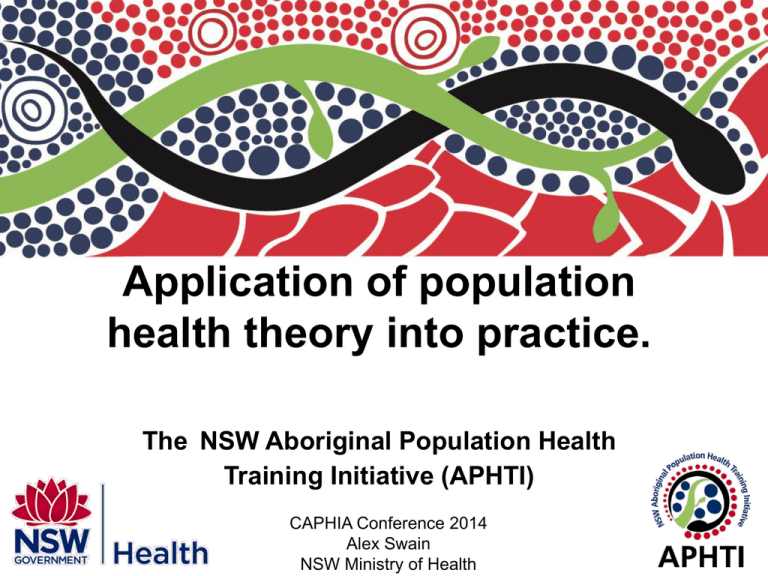
Application of population health theory into practice. The NSW Aboriginal Population Health Training Initiative (APHTI) CAPHIA Conference 2014 Alex Swain NSW Ministry of Health The APHTI aims to contribute to the development of the Aboriginal population health workforce, with the ultimate outcome to improve the health of Aboriginal people in NSW APHTI Employed for 3 years by Local Health District • 6-12 month placements Concurrent Master of Public Health study • University of choice Training opportunities • Networking and learning Competency based • Portfolio assessment “In time I anticipate that the skills and knowledge that I gain from the APHTI will see me directly have a positive impact on the health and well-being of our community.” The program has provided me with an opportunity to build my capacity by undertaking a Masters of Public Health, which is highly valued and recognised in the industry, while being exposed to practical work-based programs in a wide range of professional environments. Delivery model Ministry of Health Local Health Districts NSW Universities APHTI APHTI Advisory Committee Universities 4 trainees 3 trainees 1 trainee 1 trainee 1 trainee Example of competencies Example of competencies Performance criteria Example of placements Public Health Unit Research and Epidemiology APHTI trainee Health Promotion Aboriginal Health Application of learning Health Promotion placement Research, Evidence Management and Surveillance “Quit for New Life” project Qualitative and quantitative assignment Aboriginal Health Profile for LHD Epidemiology assignment Assessment process Recognition of Prior Experience (RPE) Learning contracts for each placement Mid Program Review Final assessment Why the APHTI is working Supportive environment Training “in place” No out-ofpocket expenses Applied learning Networking Cultural safety Trainees Alex Swain NSW Ministry of Health (02) 9424 5771 aswai@doh.health.nsw.gov.au http://www.health.nsw.gov.au/tr aining/aphti/pages/default.aspx

